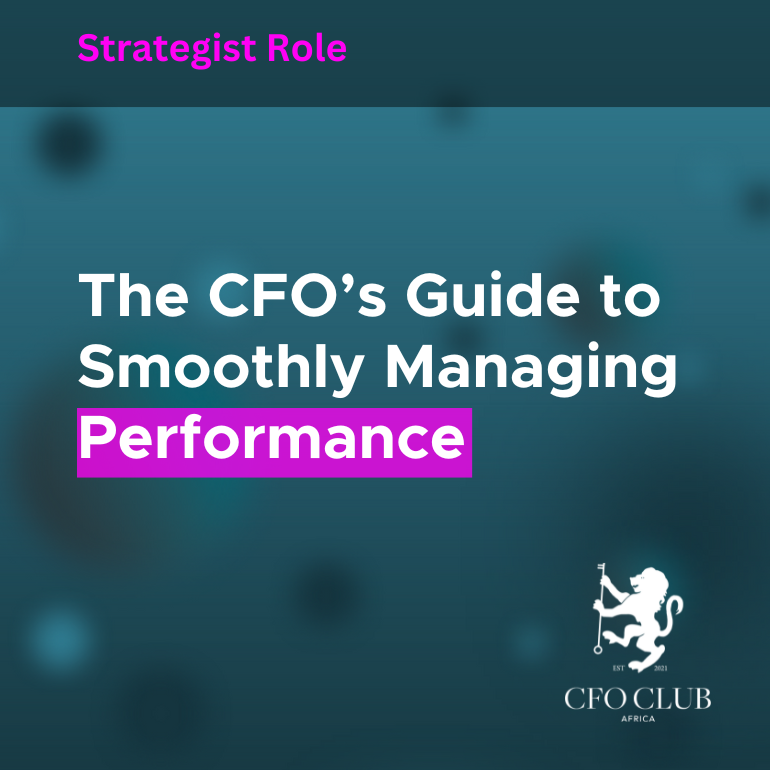Reporting Rules That Make or Break Your Reputation
Reporting Rules That Make or Break Your Reputation
Financial reporting is often thought of as the final step in the business process, the box to tick at the end of the quarter or financial year. But experienced CFOs know better. They understand that reporting, when done right, is not just a reflection of past performance. It’s a lens into the organisation’s future. And ensuring compliance with global reporting standards is what keeps that lens clear, trusted, and investment-ready.
Global standards such as IFRS, IFRS for SMEs, and emerging sustainability frameworks have become the common language of credibility. For a CFO, fluency in that language is no longer optional. It’s the foundation on which board confidence, funding access, and business resilience are built.
While many CFOs focus on getting the numbers right, those who truly lead focus on getting the reporting right. It’s not just about avoiding penalties or surviving the audit. It’s about delivering financial information that investors trust, boards can act on, and regulators won’t question.
This is where the difference lies between compliance that ticks a box and compliance that builds a reputation.
Reporting as a Business Asset
There was a time when financial reports existed mainly to meet statutory obligations. But that time has passed. Today, financial statements are used by stakeholders far beyond the finance department. Banks use them to assess creditworthiness. Analysts use them to determine investment potential. Regulators, especially in sectors with complex oversight, rely on them to flag issues before they become problems.
As a CFO, you’re not just signing off on spreadsheets. You’re shaping the perception of the business. If your reporting is inconsistent, opaque, or out of step with international standards, it signals risk even if the business fundamentals are sound. But when reporting is clean, consistent, and compliant, it does more than reflect good governance. It drives trust.
The most respected CFOs in any industry are not simply stewards of compliance. They are champions of clarity. They use global standards not as a burden, but as a baseline for better business.
Where Compliance Typically Falls Short
In practice, most finance teams know the theory. They’ve attended the training sessions and can quote the key principles of IFRS. But compliance failures usually don’t stem from lack of awareness, they stem from poor implementation.
This might show up as inconsistent treatment of leases, delayed revenue recognition, or gaps in how subsidiaries apply group accounting policies. Often, the underlying problem is not technical knowledge but operational discipline. The system is in place, but the processes around it are weak. Documentation is incomplete. Assumptions aren’t reviewed. Adjustments are made late in the process to “get the numbers right,” but the audit trail is messy or missing.
And when that happens, it doesn’t just create audit tension. It erodes the confidence that decision-makers place in the finance function.
Building a Culture of Rigorous Reporting
CFOs who get this right treat global reporting standards not as a compliance requirement but as a management discipline. They create internal cultures that take reporting seriously, not just at year-end, but across every monthly close, every internal budget review, every investor update.
This culture starts with the CFO and is built on three key foundations: clarity, consistency, and control.
Clarity means that everyone understands what the standards require, not just in theory, but in day-to-day application. Teams aren’t guessing how to treat a transaction or relying on outdated spreadsheets to apply accounting policies.
Consistency means that the treatment of financial elements doesn’t change depending on who’s handling them. Whether it’s a revenue contract, a loan instrument, or a lease modification, the same logic applies throughout the organisation and across reporting periods.
Control means that there is documentation, traceability, and auditability at every step. This includes not only what was done, but why it was done, and how it aligns with the relevant standard.
It’s not flashy work. But it’s the kind of discipline that builds reputations and prevents headaches when regulators or auditors come calling.
The CFO’s Role Is Strategic, Not Just Technical
It’s easy to get caught up in the detail of standards. Lease classifications, impairment models, fair value adjustments these are all important. But great CFOs never lose sight of the bigger picture. They understand that compliance is ultimately about trust.
It’s about giving investors confidence that the numbers they see are reliable. It’s about giving the board assurance that decisions are based on accurate, complete information. And it’s about giving operational teams the clarity they need to manage their budgets and performance.
This is why compliance cannot be delegated entirely to the technical team. The CFO’s role is to ensure that standards are not only understood but embedded. That the systems, processes, and culture of the organisation support good reporting. And that reporting, in turn, supports good decision-making.
Staying Ahead of Change
Global reporting standards are not static. IFRS evolves. The push for sustainability reporting is accelerating. New frameworks like those issued by the International Sustainability Standards Board (ISSB) are introducing fresh requirements. And integrated reporting, while not mandatory in many regions, is gaining traction as a way to show the full value of an organization, both financial and non-financial.
The CFO’s job is not to memorise every new paragraph of guidance. It’s to maintain a view of what’s coming, how it impacts the business, and how to prepare for it. This might involve engaging external advisors, investing in upskilling the finance team, or adjusting internal controls to reflect changes in risk exposure.
Proactive CFOs treat regulatory change as part of strategic planning, not as an operational nuisance.
Turning Compliance into a Competitive Edge
The most compelling reason to prioritise global standards is also the simplest: it gives you an edge. Investors back companies they can trust. Boards promote leaders they can rely on. And clients prefer working with businesses that demonstrate transparency.
When you get compliance right, you free up time, reduce risk, and elevate your standing within the organisation. You’re not reacting to problems. You’re setting the benchmark. That’s not just good finance leadership it is good business.
In a landscape where complexity is increasing and scrutiny is intensifying, CFOs cannot afford to treat compliance as an afterthought. Those who embrace global reporting standards both as a requirement and as a strategic asset, position themselves and their organisations for long-term credibility, influence, and success.
Compliance done right is not about ticking boxes. It’s about building trust, driving value, and leading with confidence.
And that’s exactly what the modern CFO is here to do.





